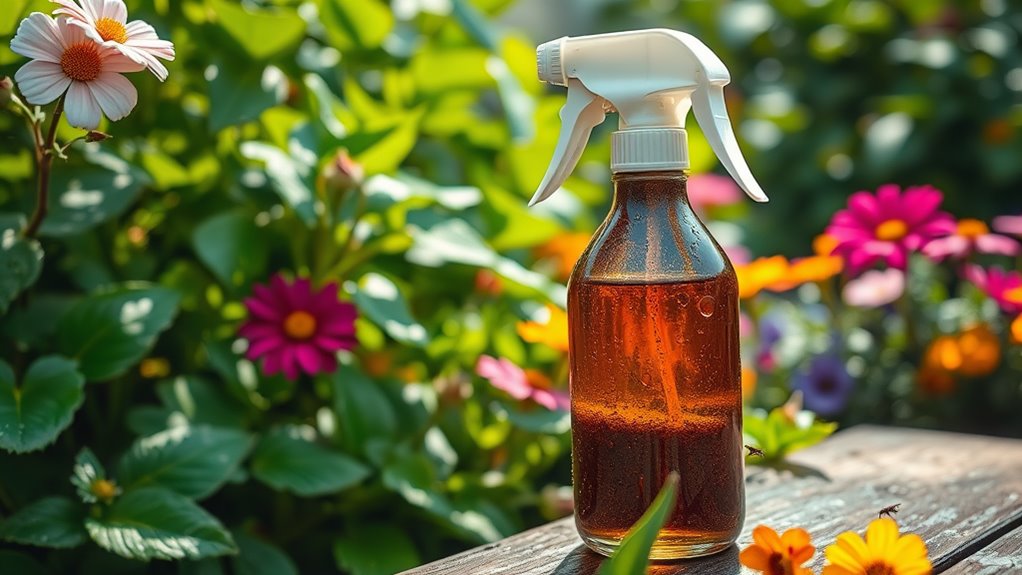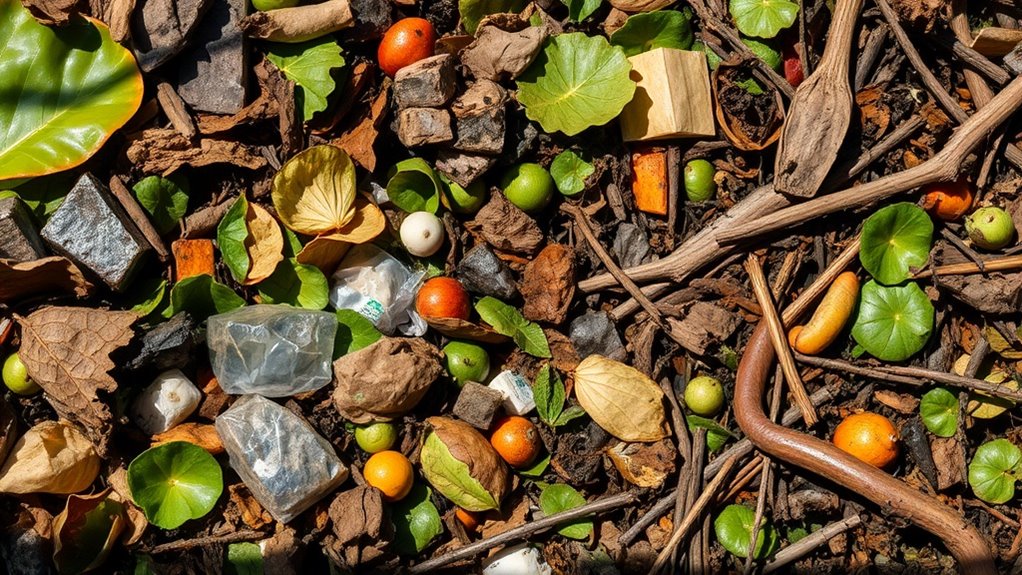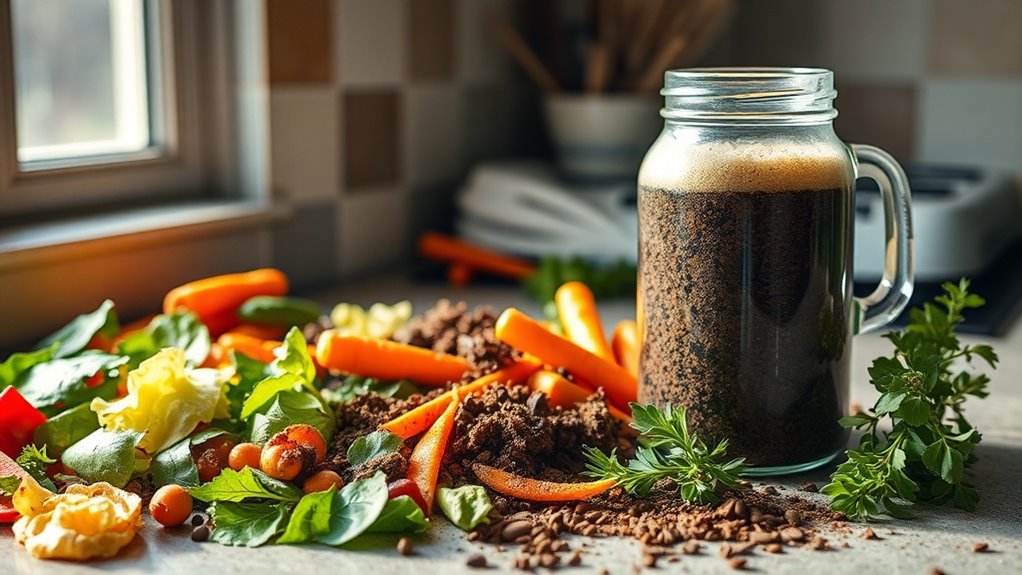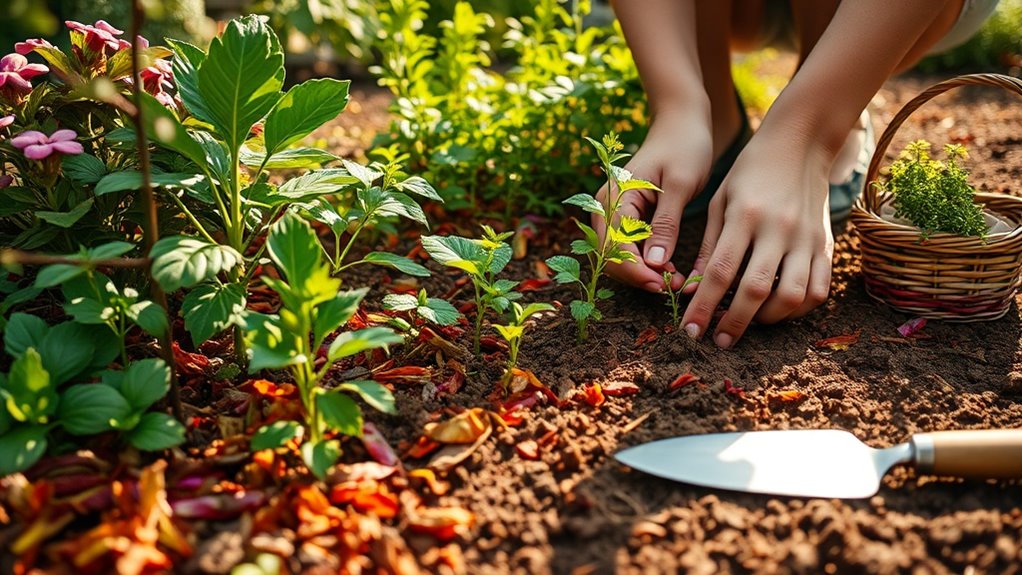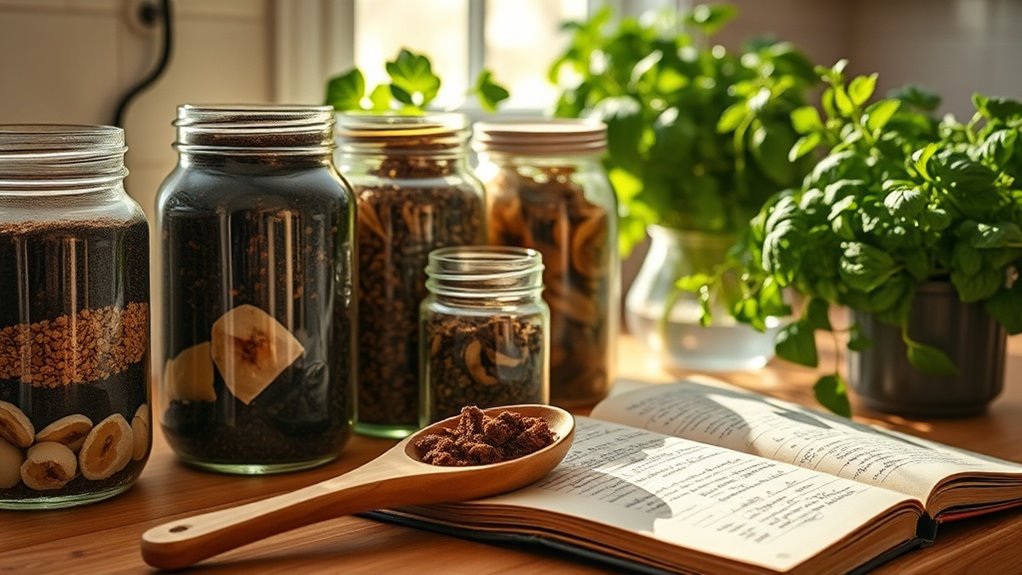Forget Chemicals- This Organic Mix Wipes Out Pests Fast
When it comes to pest control, many prefer a more natural approach to safeguarding their plants. This organic pest mix offers a practical solution that combines simple ingredients for effective results. By understanding the components and methods, you can enhance your garden’s health without resorting to harsh chemicals. What you might find surprising is the level of effectiveness this mix can achieve, prompting a closer examination of its impact on both pests and your plants.
Key Takeaways
- This organic mix utilizes natural ingredients like dish soap and vegetable oil to effectively eliminate pests without harmful chemicals.
- Essential oils, such as peppermint and lavender, repel pests while providing antimicrobial benefits for healthier plants.
- Neem oil disrupts pest growth and reproduction, making it a powerful component of the organic solution.
- Application during peak pest activity, such as early morning or late evening, enhances effectiveness against infestations.
- Reapply the organic mix every 7-14 days for sustained pest control and healthier plant growth.
Understanding the Need for Organic Pest Control
Why should you consider organic pest control over conventional methods?
Organic pest control leverages natural ingredients, reducing risks to your health and the environment.
Conventional methods often rely on synthetic chemicals, which can persist in ecosystems, harming beneficial organisms.
By using an organic pest mix, you’re opting for a solution that targets pests without the harmful side effects associated with chemical treatments.
Studies show that organic approaches can be just as effective, if not more so, in managing pest populations sustainably.
Plus, this method promotes biodiversity, fostering a healthier ecosystem. Organic pest mixes can be crafted from ingredients like garlic, neem oil, and diatomaceous earth for maximum effectiveness.
Choosing organic is an investment in both your safety and the environment.
Key Ingredients in the Organic Pest Mix
When creating an effective organic pest mix, essential oils play a crucial role due to their potent insect-repelling properties. These oils not only offer a natural deterrent but also provide additional benefits, such as being environmentally friendly. Understanding the specific natural deterrent agents in your mix can enhance its efficacy against various pests. Additionally, using vinegar and baking soda in your pest control mix can further amplify its effectiveness against unwanted invaders.
Essential Oils Benefits
Essential oils serve as powerful allies in the fight against pests, offering a natural and effective alternative to chemical pesticides.
They not only deter unwanted insects but also promote a healthier environment.
Consider these benefits:
- Natural Repellents: Many oils, like peppermint and lavender, repel pests without harmful side effects.
- Antimicrobial Properties: Essential oils can inhibit the growth of harmful bacteria and fungi, enhancing overall plant health.
- Pleasant Aroma: They provide a pleasant scent, making your home more inviting while keeping pests at bay.
Incorporating essential oils into your pest control strategy can lead to effective and eco-friendly results.
Natural Deterrent Agents
Natural deterrent agents play a crucial role in creating an effective organic pest mix.
These agents, such as neem oil, diatomaceous earth, and garlic extract, disrupt pests’ sensory mechanisms, making environments less inviting.
Neem oil, derived from the seeds of the neem tree, contains azadirachtin, which interferes with pest growth and reproduction.
Diatomaceous earth, composed of fossilized algae, desiccates insects upon contact.
Garlic extract emits a strong odor that repels various pests.
When combined, these ingredients enhance the mix’s overall efficacy, providing a powerful yet safe solution for pest control without harmful chemicals.
You’ll appreciate the results in your garden.
How to Prepare the Organic Pest Solution
Have you ever wondered how to create an effective organic pest solution at home?
It’s simpler than you think.
By combining common household ingredients, you can craft a potent mix that targets various pests without harmful chemicals.
Here’s what you’ll need:
- 1 cup of water
- 1 tablespoon of dish soap
- 1 tablespoon of vegetable oil
Mix these ingredients in a spray bottle and shake well.
The soap acts as an insecticide, while oil suffocates pests.
This solution effectively disrupts their membranes, leading to quick results. Using this DIY bug spray can help you maintain a safe and eco-friendly garden environment.
Remember to test it on a small plant area before full application.
Application Techniques for Maximum Effectiveness
To achieve maximum effectiveness with your organic pest solution, timing is crucial; applying your mix during peak pest activity ensures you target them effectively.
Employing targeted spray techniques can enhance coverage and minimize waste, focusing on areas where pests are most concentrated.
Additionally, establishing a reapplication strategy based on pest lifecycles and environmental conditions can significantly improve your results. Incorporating natural sprays made from plant-based ingredients can also boost your pest control efforts while being eco-friendly.
Timing for Application
When’s the best time to apply your organic mix for pest control?
Timing is crucial for effectiveness.
Consider these factors:
- Pest Activity: Apply when pests are most active, typically early morning or late evening.
- Weather Conditions: Avoid windy days; rain can wash away your mix, diminishing its impact.
- Plant Health: Ensure plants are dry and healthy, as stressed plants may absorb the mix less effectively.
Targeted Spray Techniques
Effective application of your organic pest control mix hinges on employing targeted spray techniques that maximize coverage and minimize waste. Focus on the areas where pests are most prevalent, using a nozzle that allows for precise delivery. Adjust the spray angle to cover foliage and crevices effectively.
| Technique | Description |
|---|---|
| Spot Treatment | Directly spray infested areas |
| Broadcast Spray | Apply evenly across larger areas |
| Underside Spraying | Target pests hiding on leaf undersides |
Reapplication Strategies
Reapplication strategies play a crucial role in ensuring your organic pest control mix remains effective over time.
To maximize results, consider the following:
- Frequency: Reapply every 7-14 days, depending on pest severity and environmental conditions.
- Timing: Apply during cooler parts of the day, ideally in the early morning or late afternoon, to minimize evaporation and maximize adherence.
- Surface Preparation: Ensure surfaces are free of debris and moisture before application to enhance the mix’s effectiveness.
Benefits of Using Organic Pest Control
Choosing organic pest control offers numerous advantages that can enhance both your gardening experience and the health of the environment. By opting for organic methods, you reduce chemical exposure, promoting a safer ecosystem. Additionally, organic solutions often improve soil health and biodiversity, fostering a thriving garden environment. Implementing eco-friendly pest protection can help keep your vegetables safe from harmful insects without resorting to synthetic chemicals.
| Benefit | Description | Evidence |
|---|---|---|
| Eco-Friendly | Reduces harmful chemicals in the environment | Studies show lower toxicity levels |
| Healthier Plants | Promotes natural growth and resilience | Organic plants exhibit better health |
| Biodiversity Boost | Supports beneficial insects and pollinators | Increased biodiversity observed |
| Soil Enrichment | Enhances soil quality through natural means | Organic matter improves soil health |
| Sustainable Practices | Encourages responsible gardening techniques | Long-term sustainability reported |
Real-Life Success Stories With Organic Pest Solutions
How can organic pest solutions transform your gardening experience?
Many gardeners have found that switching to organic methods not only eliminates pests but also enhances plant health.
- Increased crop yield without harmful residues
- Healthier soil microbiome promoting sustainable growth
- Reduced chemical exposure for you and your family
For instance, a community garden in your area saw a 50% reduction in aphid infestations after using a neem oil solution, resulting in a bumper harvest.
Another homeowner reported thriving tomatoes after applying a garlic spray to deter pests.
These success stories demonstrate the effectiveness of organic solutions in real-world gardening. Additionally, using natural aphid prevention methods can further bolster your garden’s defenses against pests.

